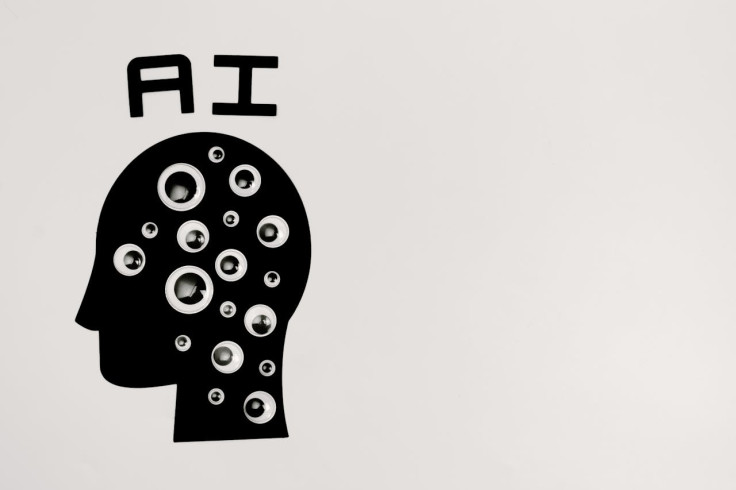Coaio Sounds Alarm: Massive AI Shifts and New Tool Rules Weaponising Software Development
From major new agent frameworks released by tech giants to groundbreaking model upgrades, the tools developers use are undergoing radical, rapid changes

The digital landscape is rapidly changing. Coaio has issued a major warning: artificial intelligence is undergoing massive shifts, and new guidelines are emerging for the very tools that are turning software creation into a potent, potentially dangerous force. This transformation requires urgent attention from everyone in the industry.
Significant developments in software creation are currently dominating the tech landscape, particularly those involving AI-driven platforms and tools. Developers are witnessing a substantial shift in how they build and manage software, driven by a range of factors, including Microsoft's latest innovations, emerging AI models, and notable regulatory changes.
In its most recent analysis, Coaio examined these critical announcements. It examined their direct impact on the industry and considered how they could influence future projects. With artificial intelligence leading this transformation, let's explore these crucial stories and the potential they hold for driving both efficiency and fresh thinking.
Microsoft's Agent Framework: Advancing AI in Software Creation
A crucial moment for AI-integrated software development arrived with Microsoft's recent announcement: the Agent Framework is now available for preview. This open-source release, which supports both .NET and Python, aims to streamline the creation of AI agents and complex, multi-agent systems.
The official information, reported by SD Times, explains that the framework provides developers with the tools to either build standalone agents or link them using graph-based workflows, thereby simplifying the management of intricate, connected systems.
This tool is designed to replace Microsoft's older initiatives, such as Semantic Kernel, by providing enhanced capabilities for both automation and informed decision-making.
Announcing Microsoft Agent Framework in Azure AI Foundry.
— Microsoft Azure (@Azure) October 1, 2025
As agentic AI adoption accelerates, managing multi-agent systems is harder than ever. The framework helps devs build, observe, and govern responsibly—at scale.
Learn more: https://t.co/cklPdJtNgg pic.twitter.com/qpso1UPcPz
For example, developers can now create agents that handle tasks such as analysing data, building predictive models, or even managing autonomous decision-making within applications.
The fact that the framework is open-source invites people to contribute, which could rapidly advance fresh ideas in fields like automated chat systems, testing programs, and customised software.
The effects on software creation are substantial. In an era where artificial intelligence is increasingly integrated into daily applications, this framework has the potential to reduce development time by facilitating the seamless incorporation of AI components.
Consider, for example, a customer support system where AI units manage questions instantly —this could both lower expenditure and enhance user interactions. Nevertheless, it also raises concerns about scaling and safety, as overseeing numerous agents within a single workflow necessitates robust mechanisms for handling errors and safeguarding data privacy.
Anthropic's Claude Sonnet 4.5: The New Leader in AI Model Performance
Turning attention to another key player, Anthropic's launch of Claude Sonnet 4.5 has generated considerable buzz within the AI world. This update is being hailed as the 'best coding model in the world', supported by impressive metrics, including its 77.2% success rate on the SWE-bench for software creation tasks.
According to an article in SD Times, Sonnet 4.5 particularly stands out in developing complex autonomous programs and coding applications, performing with greater precision and speed than previous models.
Rolling out to @code now: Claude Sonnet 4.5, Anthropic's most advanced model for coding.
— Visual Studio Code (@code) September 29, 2025
Let us know what you think!https://t.co/cxPusXw6Q1 pic.twitter.com/mafbRVbT20
This breakthrough arrives at a crucial moment for developers who are constantly managing the requirements of AI-driven work. The power of this model stems from its ability to produce superior code, locate and fix bugs, and even propose ways to improve performance, all of which can significantly change how teams approach the development process.
For instance, new companies focused on machine learning might utilise Sonnet 4.5 to build feature prototypes more quickly, thereby decreasing the requirement for significant hand-written code.
Going further than just coding, this model possesses the ability to build autonomous programs that communicate with users or other platforms, mirroring Microsoft's recently released structure.
The Next Phase: AI as the Core Creative Force in Software
The most recent strides in artificial intelligence — including Microsoft's Agent Framework and Anthropic's Sonnet 4.5 — point towards a major shift in software creation, moving it from being merely a helping utility to an essential generator of innovation.
🚨 Introducing Microsoft Agent Framework.
— 🔥 Matt Dancho (Business Science) 🔥 (@mdancho84) October 4, 2025
A new open-source Python library for making agents.
This is what you need to know: pic.twitter.com/t6HNj7Qptj
These new developments offer the opportunity to make sophisticated software capabilities accessible to everyone, enabling smaller teams to compete with larger companies while also streamlining processes such as project management and risk assessment.
As developers increasingly turn to artificial intelligence for their daily work, an increase is expected in both output and the quality of the finished product. However, this change necessitates a deeper understanding of AI and a heightened awareness of ethical issues.
The careful balance among fresh ideas, security measures, and the ability of people to adapt will shape the next chapter in software creation. In this environment, technology allows forward-thinkers to execute their concepts with exceptional speed.
© Copyright IBTimes 2025. All rights reserved.





















